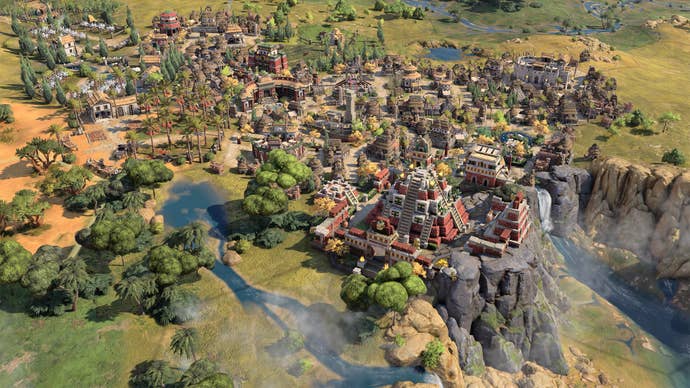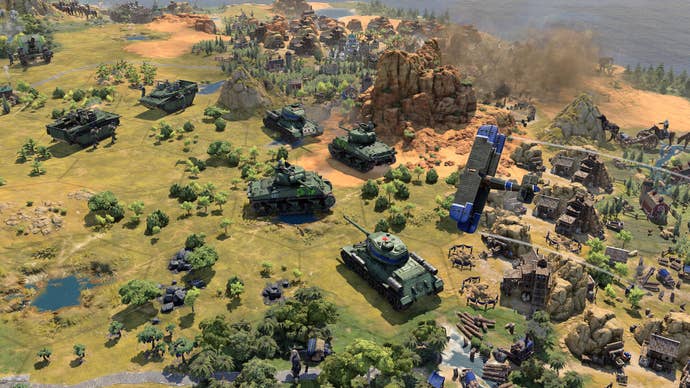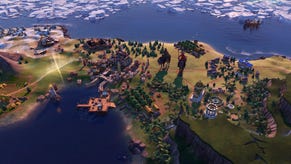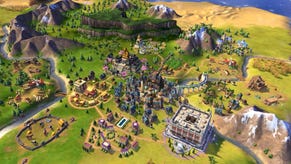Civilization 7 is breaking traditions and taking some big risks - and that's brilliant
In a newly-crowded market for 4X simulation games, the market leader returns - and it's not resting on its laurels.
In the eight years since Civilization 6 was first released, the 4X genre has changed immensely. Sid Meier's strategy management series of exploration, expansion, exploitation, and extermination has always dominated - but over the last decade, rivals have risen.
In Civilization parlance, we've entered a new era. There's more viable alternatives to Civilization now than there have ever been - and that puts developer Firaxis in an interesting position going into the rare moment of the introduction of an all-new Civilization. In a first look, it certainly appears as though Firaxis is stepping up to the plate without a shred of complacency.
Civilization 7 is about change. It's clear that Firaxis has taken a long, hard look at several of its recent contemporary rivals. No Civ tradition was off the table, it seems. This combined with day-one releases on every platform imaginable, not just PC, and a dedication to cross-platform play and progression, has defined the game. It's forced the team to think differently.
In a short presentation detailing what's new this time around, the changes come thick and fast. With Civ sequels, I'd argue that typically each game is defined by a handful of smaller changes that combine to provide an overall greater difference in feel and flow. With Civ 7, however, a bunch of much larger and more significant changes are on offer. There's multiple shifts that I'd categorize as on the same scale as the series' shift to a hexagonal play grid in the fifth entry - which up until now was the biggest systems switch-up the series has ever attempted.
Concepts like decoupling leaders and civilizations are huge in terms of the overall Civ meta. The concept of which combinations of leader and civ are best will inevitably dominate fan conversation. Each Civ now has its own Civics tree, separate from the main one, which will have unique unlockables that emulate how that society operated in the real world. As you progress through the 'Ages', you won't just unlock new units and tech: you'll actually choose a whole new Civilization to layer on top of what you had before, while your Leader will remain the same.

This is the biggest change: rather than play as the Romans and simply remain as a relatively static empire, you'll build history and culture in layers and waves, much as in the real world. It's up to you if you follow a path that remains in line with history, bringing together cultures that also aligned in the real world, or if you'd rather create all-new and unreal mash-ups with your choices through the eras.
The progression trees are now not each a monolithic beast, this time around instead segregated into ages, with each era of the world having its own tech and civic tree. This will obviously remove the anachronism of players unlocking nuclear fission in the middle of the industrial revolution, but will also clearly tip the scales of balance in interesting ways.
Combat is overhauled in a way that makes things like flanking manoeuvres much more viable, meaning positioning is more important than ever. There's a new way to group many military units together for a 'march' with a new Commander unit - which coincidentally will make moving an army through a one-tile wide bottleneck simple rather than infuriating.

Builder units are gone! This means less busywork - or, of the lazy, less pressing 'automate building' on each new unit they train. This one feels smaller when you say it out loud - but if you stop and truly think about it, it's a massive change - and the sort of choice that sends a clear message about the sort of game Civ 7 is likely to be.
I've got well over 1500 hours logged on Civs 4 through 6, and I've got a lot of love for the sixth entry, though four remains my favourite. Civ 6 was a great subtle evolution and tightening of all of the ideas expressed in 5 - but I'm thrilled that Firaxis has identified that it's time for something new. At a time when upstarts are everywhere, the market leader hasn't rested on its laurels. It's exciting.
Conventional wisdom says that competition is good for the market. With rivals threatening, even the market leader is forced to think boldly in an attempt to deliver a bigger, better product. Civilization 7 could be great proof of that. By taking some big swings, Firaxis could deliver the most invigorating 4X game in years - but how well the changes work will only become clear across hundreds of turns and many hours of play - not in a quick-fire trade show demo. I can't wait to fully play with Civ 7's new systems myself.







